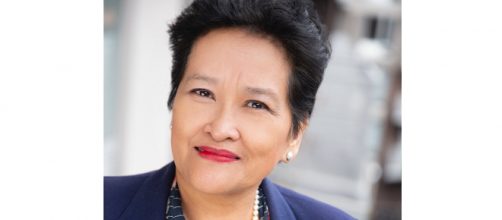“Dying in Boulder” is a new play being performed in NYC’s La MaMa that was written by playwright Linda Faigao-Hall and directed by Ian Morgan. The show will preview on February 28 and open on March 3, 2019.
“Dying in Boulder” centers on a white American woman who identifies as a Buddhist. Living in the city of Boulder, Colorado, the woman and her mixed-Filipino family must cope with arranging the rotes of her impending funeral. Despite dealing with the somber topic of death, this play is a comedy that explores the cultural confusion that occurs in America when it comes to the processes of aging, death, and human’s inability to control the inevitable.
Recently playwright Linda Faigao-Hall discussed this play and more in an exclusive interview.
Plays, theater, humor, and death
Meagan Meehan (MM): How did you get into the theater and what inspired “Dying in Boulder”?
Linda Faigao-Hall (LFH): I’ve been writing plays since I was a child in the Philippines. It was always a passion. I continued to pursue it when I immigrated in 1971. My first production was in 1984. I haven’t stopped writing. “Dying in Boulder” was inspired by a Caucasian-American sister-in-law who was a baptized Buddhist who, along with my brother, taught tai-chi at Naropa University in Boulder, Colorado. She was diagnosed with breast cancer, and I was there attending to her care during her last week.
She arranged for Tibetan Buddhist funeral rites; at that time, I was a practicing Catholic and was directly involved with the rituals. I was both fascinated and appalled.
MM: The play centers on a woman who is a Buddhist, are you a follower of that religion?
LFH: No. My brother was a baptized Buddhist who also taught tai chi at Naropa. Like me, he was born and raised a Catholic until he immigrated to the US in the 70’s. I fell under his influence, but I never became a Buddhist like he did. I simply “dabbled” in Asian mysticism, like many “hippies” at the time.
MM: How did you manage to include elements humor into a play about death?
LFH: Many times, when we listen to someone telling stories about attending to someone who is dying, the account always includes very humorous elements.
The interplay between profound absurdity and deep mindfulness when we watch someone die is actually a universal experience.
MM: What were the challenges of writing and staging “Dying in Boulder”?
LFH: How do you write a play about aging and dying and not turn people off? How do you strike a balance between moments of hilarity and profound sorrow? How do you accept aging? How do you own it? How do you not make it into a melodrama or a sitcom? How do you accept aging without aspiring to be Jane Fonda? What is a good death? The play has both exterior and interior landscapes. How does one stage interior experiences without breaking the flow? How do you dramatize American cultural appropriation without making Americans wrong?
Characters, audiences, projects, and La MaMa
MM: What do you most enjoy about the characters and what do you hope audiences remember most about the show?
LFH: I hope for audiences to be moved – very few plays move me these days – many plays are issue-driven; they’re debates about issues. I wanted to write about human beings living in the moment.
MM: How did you secure the La MaMa venue and what are the perks of working with them?
LFH: It’s a trade secret. (I’m joking.) I was a La MaMa supporter of Cecile Guidote, an anti-Marcos activist who fled the country during the regime. I was in a few of her productions as a performer, though I never got produced there at the time. One of the perks of working with La MaMa is their commitment to making sure you have a successful production – the space and their technical support.
MM: What other theatrical—or other kinds—of projects are you working on at the moment and what are your exciting plans for 2019?
LFH: I have a new full-length play called Dance Me! about Filipino ballroom dancing. It will be produced by Out of the Box Theatrics in the fall of 2019.


